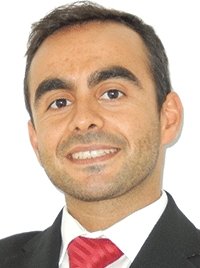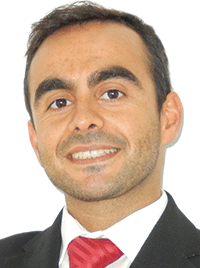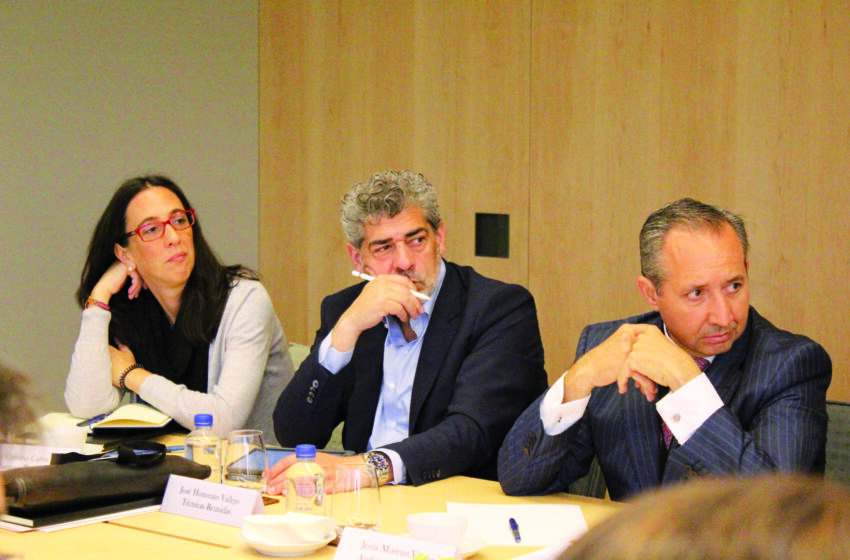‘I prefer working with several firms, that way we get a better price and better quality’


Indra’s Luís Graça Rodrigues says finding lawyers with the necessary expertise can be difficult and not all law firms have the standard of client service he expects
It can be better to work with a smaller group of law firms that have an in-depth understanding of your company and the way it operates, rather than a massive list of firms that you use more infrequently, argues Luís Graça Rodrigues, Portugal and Lusophone Africa regional counsel at Indra. “The five or six law firms that I work with on a regular basis know the way the company works, and also have the specialist expertise I need, and this is a win-win situation,” he adds. “I don’t need a pool of dozens of law firms.”
Indra is a provider of technology for sectors including defence and security, transport and traffic, energy, telecommunications and media, financial services, public administrations and healthcare. Indra, which reported revenue of more than €3 billion in 2017, employs 40,000 professionals.
Use different firms
Half of Graça Rodrigues’ time is dedicated to the Portuguese market, with the other half devoted to Lusophone Africa, as Indra has an office in Mozambique as well as several projects in Angola. “If the matter involves local litigation or has to do with installing a subsidiary, for example in Mozambique, we work with an external counsel, but we also provide legal support internally,” Graça Rodrigues explains. He adds that Indra does not always use the same law firm. “I am not very keen on using the same law firm,” Graça Rodrigues says. “I prefer to work with several firms, because that way we get a better relationship in terms of price and quality.” To illustrate the point, he highlights the fact that there are five or six big law firms to choose from in the African jurisdictions Indra operates in.
Specialist knowledge hard to find
In addition to preferring law firms that offer a good price, Graça Rodrigues says Indra also favours firms with an in-depth knowledge of the company and its business, as well as those that specialise in the matter at hand. However, it is not easy to find external law firms with the same level of specialist knowledge as the in-house team, he adds. “We usually externalise very specific non-recurring work – such as M&A deals – which we don’t deal with every day.”
Indra’s Portugal-based in-house legal team comprises only two lawyers, so the input of large law firms – which can, for example, offer in-depth knowledge of the IT sector as well as bigger teams – is highly valued.
Unreasonable deadlines
However, not all law firms have the specialist knowledge or the standards of client service that Indra expects. Graça Rodrigues says he has encountered law firms that do not have a sufficiently in-depth knowledge of the business or seem unable to adhere to strict deadlines. Or they may impose unreasonable deadlines themselves that do not take into consideration the clients’ internal dynamics. “With 40,000 employees, a lawyer cannot expect me to give them a decision from one day to the next, for example,” Graça Rodrigues says.
The European General Data Protection Regulation (GDPR) is having a massive impact on the work of the Indra legal team, according to Graça Rodrigues. However, in addition, there are new public procurement regulations, which came into effect at the start of this year. “As we participate in public tenders, we need to know about such changes to laws and communicate them to our staff so that they can comply correctly with them,” Graça Rodrigues explains. He adds that the advantage of the data protection law is that, given it is European Union legislation, most of the work can be done centrally from other locations before the company’s local lawyers – in Portugal or Italy, for example – provide local legal support. Graça Rodrigues says the GDPR is beneficial for companies in Europe because it provides a legal framework for data processing, where previously authorisation was required to carry out such activity. “Now we have accountability and we can process data, but we have to prove that it is done so according to the law,” he explains. Meanwhile, in Africa, Indra faces the challenge of keeping up with local legal developments, which means the in-house legal team needs to ensure local laws are studied and understood, Graça Rodrigues says.
Luís Graça Rodrigues, Portugal and Lusophone Africa regional counsel at Indra.












